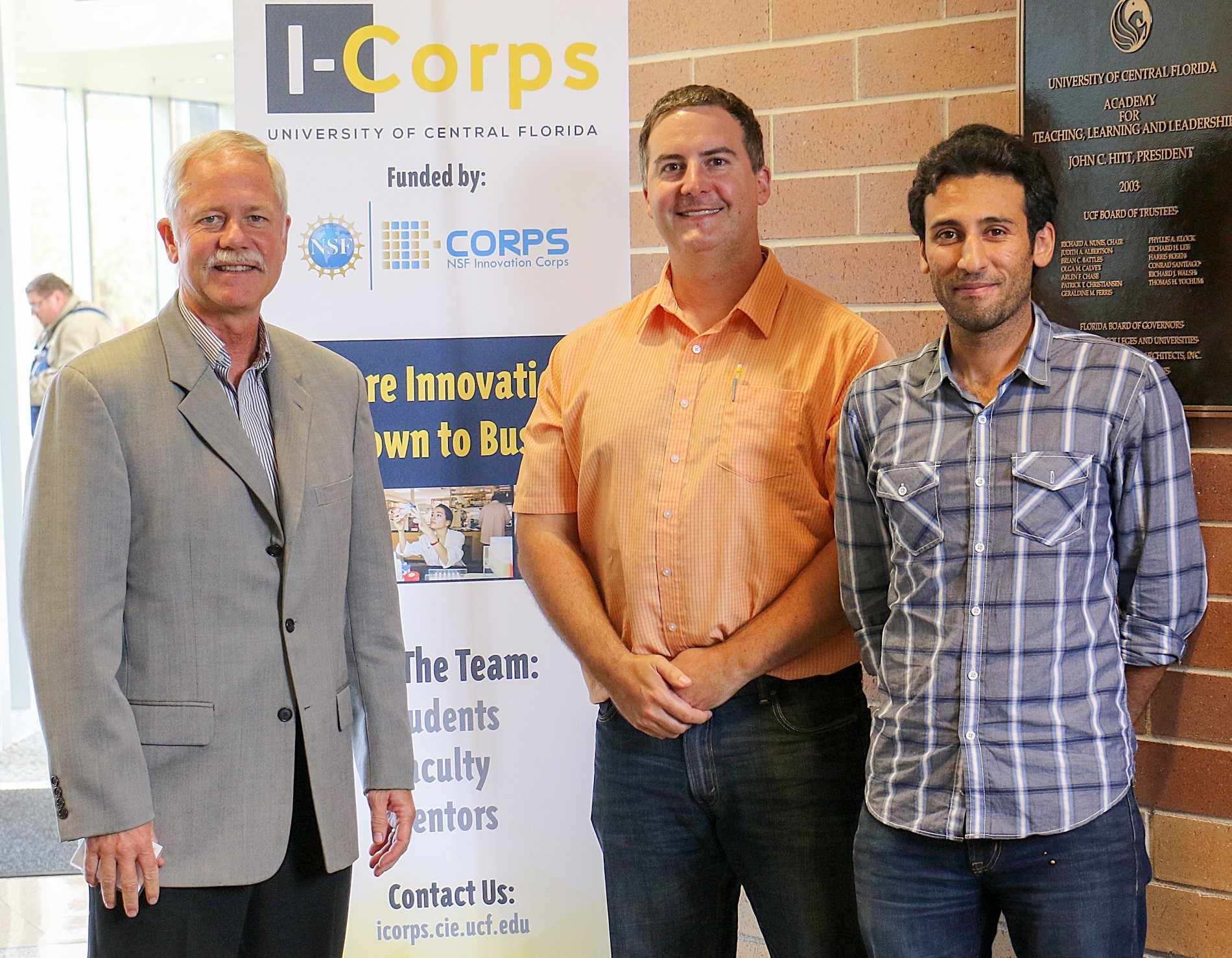WindSwarm
WindSwarm team developing more accurate, durable wind measurement device
The idea came to Stephen Medeiros, Ph.D., a Research Assistant Professor in UCF’s civil engineering program, while conducting storm simulation research at the university. Current anemometers—the devices used to measure wind speed and direction—are lacking in some very significant areas. Most notably, during the height of an intense storm, they can be unreliable in measuring top wind speeds.
It occurred to Dr. Medeiros that there might be a market opportunity for a better performing anemometer—one that could not only accurately measure the wind speed during the height of a storm, but also was designed to be low maintenance, durable, easy to deploy and cost efficient. As the Academic Lead of the “WindSwarm” team taking part in the third cohort of UCF’s I-Corps program, he and his Ph.D. Student Milad Hooshyar are taking the next step in this process.
With direction and guidance from industry veteran Terry Pierce, who serves as Mentor, Dr. Medeiros and Milad are working to develop an anemometer with no moving parts—relying on sensor technology rather than the rotating series of cups to measure wind speed and a vane to observe direction. The device can be deployed in permanent or portable installations and can be configured with additional sensors to measure humidity and barometric pressure.
“We knew from our storm research that a high performing anemometers would be welcomed by the scientific community, but we wanted to be part of the I-Corps program to help us better understand the potential market opportunity,” said Hooshyar.
Due to the cost and maintenance requirements, scientific grade weather stations, along with the current anemometers that are used, are sparingly deployed. In addition, areas with frequent intense storms can result in frequent station failure and data loss.
“We believe the market would be receptive to the type of reliable, low-to-no maintenance, durable anemometer system we’re proposing,” said Hooshyar. “Our participation in the I-Corps program has helped us to learn, however, that there are variations within specific market segments as to the performance qualities that are of most interest and we’re now able to address this.”



